Unnatural Selection
Why Darwin Would Be A Great Copywriter
My favorite scientific theory is Natural Selection.
What does it say about me that I HAVE a favorite scientific theory? Hm, topic for another post, maybe. But for now, let me just say that I admire this theory for three reasons:
1) Any moron can understand it. 2) It’s incredibly simple and elegant 3) It’s logically unassailable
 I don’t know nuthin about Natural Selection, but a longer neck would be super-handy
I don’t know nuthin about Natural Selection, but a longer neck would be super-handy
Reasons #1 is crucial: Newton’s third law of motion and Einstein’s E=MC2 are both elegant and simple, but to truly understand them, you need to know the math. But natural selection? Once you accept that genes are a) responsible for your body and its attendant structures being the way they are, and b) heredity, you just can’t argue with natural selection. It’s brain-dead simple – you have a characteristic that makes you more successful evolutionarily, you pass it on to your offspring and, given enough generations, those that have the trait survive and breed, and the ones that lack it don’t. The logic is flawless, there are no exceptions, and, as I said, any moron can understand it.
But as much as I love natural selection, I think its universal applicability is causing serious harm to marketing communications (well, frankly, to all human culture in general, but I should start small).
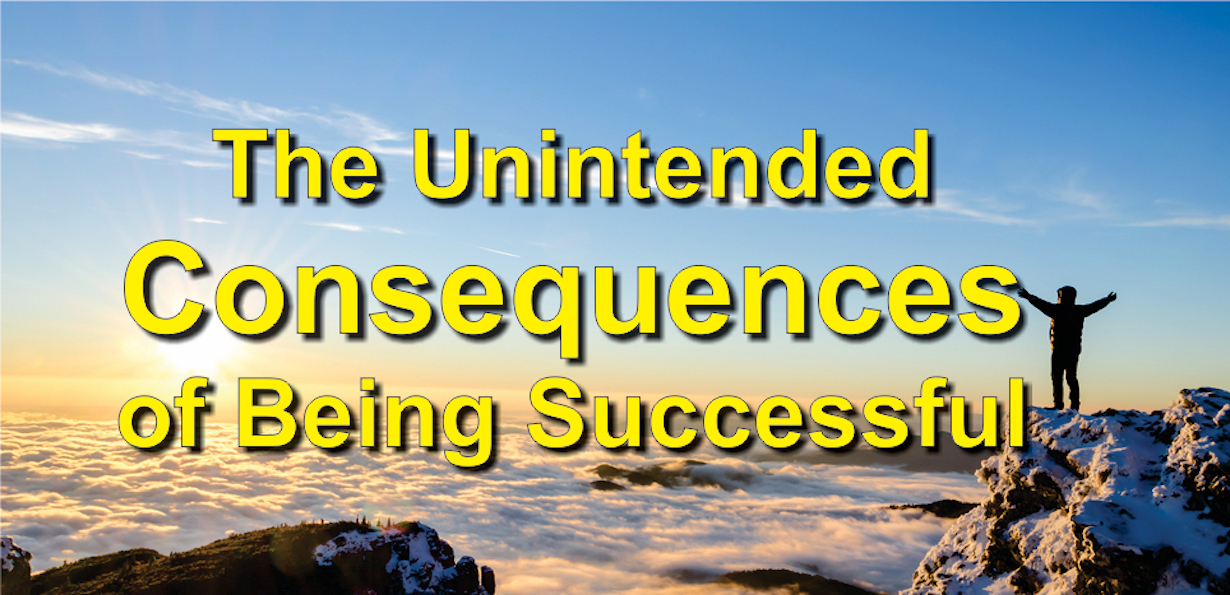 I’m King of the World! Wait, how do I get down?
I’m King of the World! Wait, how do I get down?
Here’s how.
Imagine I am a creative director looking to hire a writer. What do I look for? If I am like most creative directors (and I am), I am an arrogant SOB who thinks that I pretty much invented effective copy, and that any other possible approach or style or voice or whatever is inferior to mine (yeah, OK, guilty as charged).
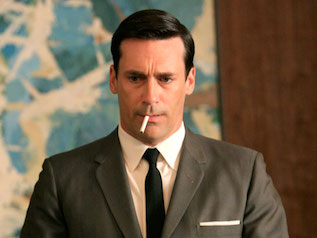 Sure, we could do it your way. But … why?
Sure, we could do it your way. But … why?
So I hire that person, the one with the “Mini Me” of books.
And eventually, given enough time, natural selection occurs and ALL communications starts to look and sound alike.
 I dunno, I just feel like there’s something missing …
I dunno, I just feel like there’s something missing …
If that’s so, why does it ever change?
Again, the answer can be gleaned from the history of science. In 1962, Thomas Kuhn, a physicist (naturally – physicists are the copywriters of science, the ones who find the big answers) first coined the term “paradigm shift.” He said that once scientific wisdom gets established, it is generally overturned only when evidence forces a re-examination (and even then, it is almost always accompanied by frenzied defense of the current paradigm), or when someone with limited knowledge in the specific field crosses over for some reason and offers a fresh take that topples the entire structure. An example would be when Luis Alvarez (and later his son Walter), a geologist and physicist (sensing a pattern here?) proposed that the mass extinction at the end of the Cretaceous Period was caused by a large meteor striking the earth, thereby altering the climate enough to wipe out most of the living things on the planet.
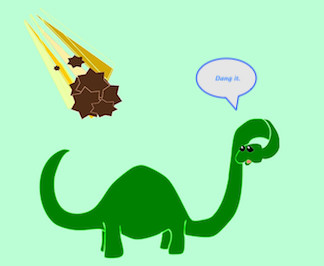
Amid the ensuing howls of protest was some version of this: “what do you know about extinction, Alvarez?? You’re a geologist/physicist! Biologists are the ones who study extinction.” Exactly. Biologists at the time were accounting for the weird and sudden shift in the fossil record about 66 million years ago by saying it was a data gathering problem, or a statistical anomaly or whatever – even Darwin himself was a firm believer that species became extinct at about the same rate as they evolved, and for much the same reasons.
My point is, it takes a fresh approach to create a paradigm shift – and most of the time, those with a vested interest in the old paradigm aren’t giving up without a fight.
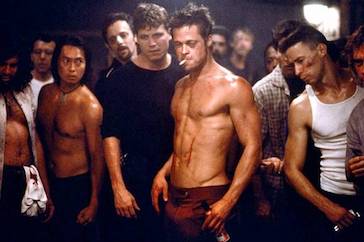 “‘Paradigm shift??’ I’ll paradigm shift your jaw for you!”
“‘Paradigm shift??’ I’ll paradigm shift your jaw for you!”
I have seen this in many fields in my career. In fact, I’ve seen it in two separate subsets of the same field: education.
In my work for Olin College, I learned that there is a fundamental disconnect in the education of engineers. Traditional engineering schools stick students in three years of academic classes about physics, materials science and the like before they get to, you know, build something.
 “oooh, can’t waint to spend the rest of my life doing this …
“oooh, can’t waint to spend the rest of my life doing this …
But building stuff is a) what attracts kids to engineering in the first place, and b) what companies want the engineers they hire to do. Olin’s model was (if I may hugely and grotesquely simplify their paradigm-shifting concept) to turn that on its head, and start with building stuff, back-filling the science as the student progressed.
Sounds like an interesting approach. Can you guess who didn’t like it? Yup … engineering school administrators.
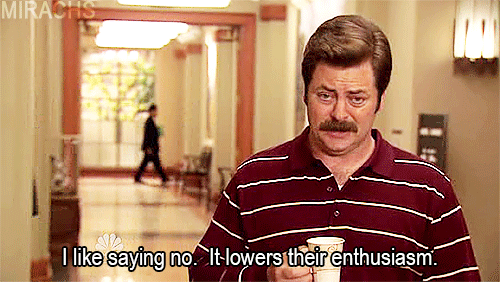
That’s no way to teach engineering, they said. Well, according to whom? According to how THEY learned. And, since they are the fraction of engineers who DON’T go into jobs where they build stuff, they really don’t have the practical background to take a non-academic approach – or to understand that, for a lot of real-world applications, the academic stuff isn’t that important.
The exact same pattern has created a controversy in medical schools. At some point in the recent past, a variety of issues have been raised about medical education – doctors are taught to be too focused on disease mitigation rather than health, med students never study human skills like bedside manner, residents make mistakes because they are mentally exhausted by 48-hour shifts, and so on.
 ZZZZZZZZZZZZZZZZZZ
ZZZZZZZZZZZZZZZZZZ
Changes were proposed … and vigorously resisted by medical school professors and administrators. Which consist of the roughly 1/3 of medical school graduates who DON’T become practicing doctors, choosing research and education instead. It’s a self fulfilling prophecy, and a highly intellectualized version of the “not invented here” syndrome.
To (finally!) return to my original point, both of these are examples of how a process much like natural selection kills new thinking.
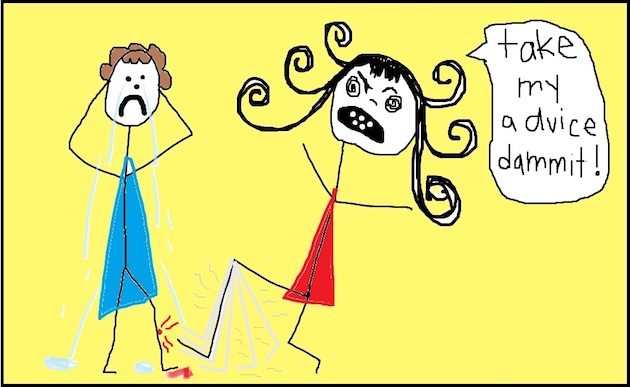
My Advice
Don’t let this happen to you! If you do creative work for a living, here are two things I recommend to keep your work fresh:
a) Try to work with people, or hire people, whose work is radically different from yours.
b) Accept opinions from people who may not actually know what they’re doing.
Oh man, are these hard to do! After all – they really don’t know as much as you do. But that’s why you have to listen to them, because they are not jaded by doing so much work, nor do they automatically accept things that you’ve internalized so much, you’ll never question it otherwise. After all, you KNOW you’re right – you’ve spent your career having your brilliance validated. Except sometimes, you are wrong.
An embarrassing example: I do a ton of work with financial advisors, creating custom marketing materials for them. The company for whom I do this likes to describe what these advisors do as “wealth management.” Seems like a handy term – accurate, relatively understandable, not too jargon-y. However, just a few days ago, I spoke with an advisor who said, “I hate that term, wealth management.” I thought, oh jeez, here’s a live one. I thought, it doesn’t matter if YOU hate the term, that’s the term because … well, because it’s the term, it’s what everyone calls it. But instead, I bit the holy hell out of my tongue and asked her why she didn’t like it. “Because clients turn off when I say it. I don’t think most of them think of themselves as ‘wealthy.’ Even if they have, say, $5 million to invest, to them, they think the wealthy are a whole different class from them.” Which means, according to this one advisor, we are turning off some subset of the total audience with THE NAME OF OUR PRODUCT! That’s a problem, and one that I wouldn’t have EVER thought of, even though I’ve written web sites and print materials for maybe 300 financial advisors.
 OK, well, possibly not my most spectacular moment
OK, well, possibly not my most spectacular moment
I needed an outside voice, a paradigm shift, to overcome the unavoidable impact of natural selection.
Honestly, in this case, I am not sure I can do anything about this problem – I may be the stubborn old coot clinging to the status quo, or I may just not have the juice to fight City Hall in this situation.
But I’ll tell you what – I am going to do two things from here on:
I am going to make a sincere attempt to question EVERYTHING, no matter how axiomatic or widely accepted, and
I am going to listen when people tell me something I reflexively think is wrong
I think my clients will benefit … plus, it’s fun to stir up trouble.
